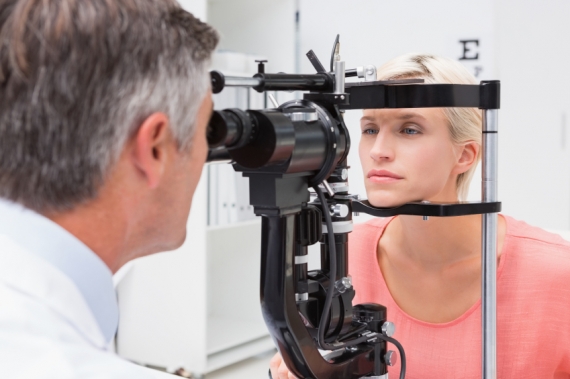Blepharitis Causes
Blepharitis is an inflammation that affects the eyelids and eyelashes. Find out what causes this common condition and what can be done about the problem from the experts at Elmquist Eye Group.

What is Blepharitis?
Blepharitis (blef-uh-RYE-tis) is a chronic inflammation or swelling of the eyelids and eyelash follicles. Your eyes may become red, blurry or tear up frequently. The eyelids may crust, flake, scale or redden, and the smooth inside lining of the lids may feel rough and scratchy. In more serious cases, eyelashes may fall out or the infection may spread to the cornea.
Blepharitis is most commonly caused by seborrheic dermatitis, dandruff of the scalp or eyebrows, bacterial infections, allergic reactions or poor eyelid hygiene. It occurs in two forms:
- Anterior blepharitis affects the front of the eyelids, usually near the eyelashes. The two most common causes of this type of blepharitis are a bacterial infection and a skin disorder called seborrheic dermatitis, which causes itchy and flaky skin.
- Posterior blepharitis affects the interior surface of the eyelid which comes in contact with the eye. It is usually caused by problems with the meibomian (oil) glands in the lid margin. This type of blepharitis is more common than the anterior type, and often affects people with acne rosacea.
Blepharitis Symptoms
The signs and symptoms associated with blepharitis include:
- Itching and burning of the eyes
- Redness of the eyes or eyelids
- Flaking of skin on the lids
- Eyes feel dry or gritty
- Crusting near the lashes (generally worst when you wake up)
- Reduced vision
- Dry eye
How We Treat Blepharitis
Blepharitis usually affects both eyes and is chronic, which means that once you’ve had it, it can come and go, even after it has been cleared up.
In mild cases, your eye doctor may advise you to place a warm washcloth on your eye to help loosen crust. You may also have to wash your eyelids with an eyelid cleanser or diluted baby shampoo. If an infection is present, your doctor may recommend prescription antibiotic drops, ointment, or an oral antibiotic.
To learn more about what causes blepharitis and discuss the treatment options with one of the eye care specialists at Elmquist Eye Group, please contact us at (239) 936-2020 to schedule an appointment.
